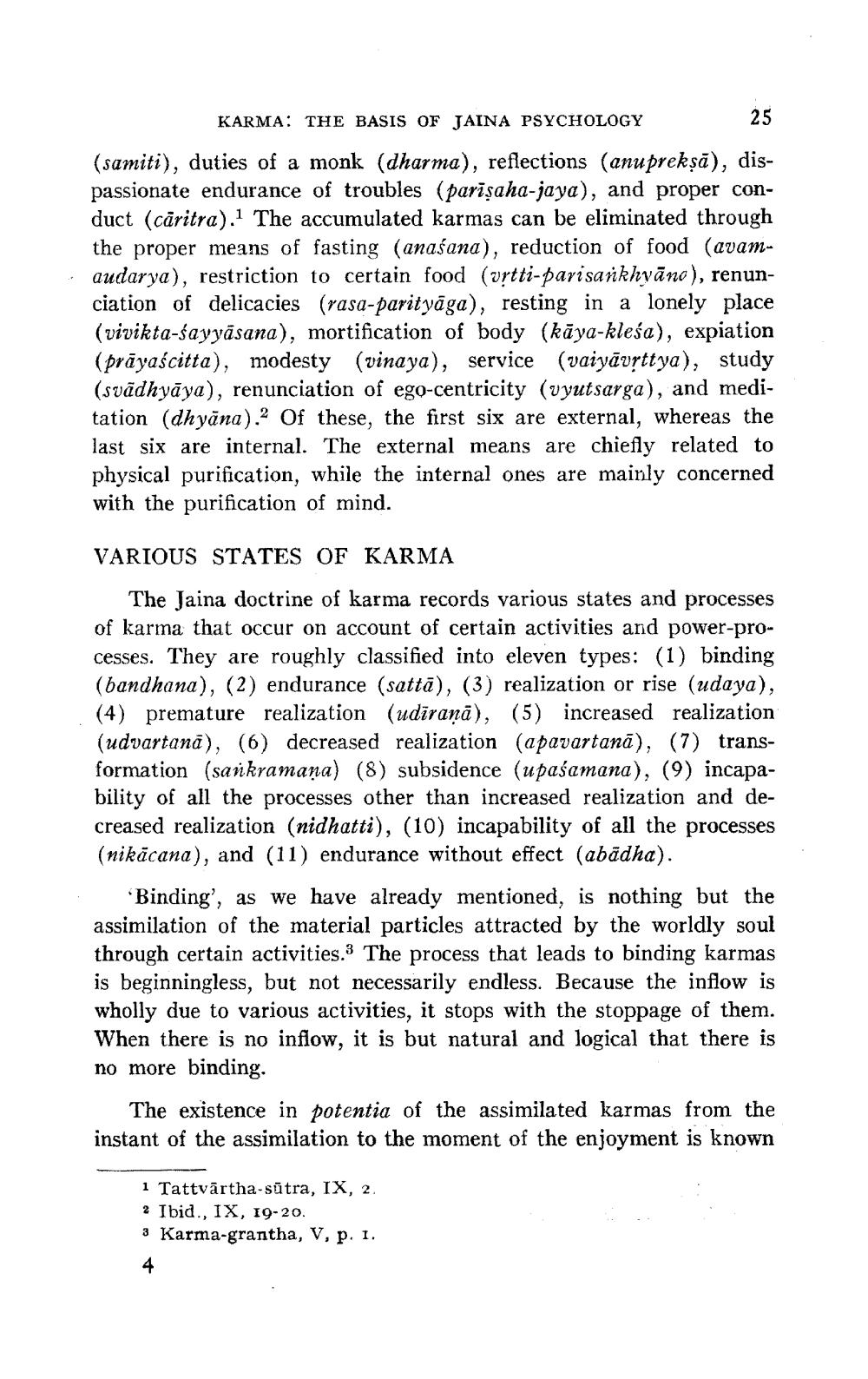________________
KARMA: THE BASIS OF JAINA PSYCHOLOGY
(samiti), duties of a monk (dharma), reflections (anupreksā), dispassionate endurance of troubles (parāşaha-jaya), and proper conduct (căritra).1 The accumulated karmas can be eliminated through the proper means of fasting (anaśana), reduction of food (avamaudarya), restriction to certain food (vrtti-parisarkhyāno), renunciation of delicacies (rasa-parityāga), resting in a lonely place (vivikta-śayyāsana), mortification of body (kāya-klesa), expiation (prāyaścitta), modesty (vinaya), service (vaiyāvrttya), study (svādhyāya), renunciation of ego-centricity (vyutsarga), and meditation (dhyāna).2 Of these, the first six are external, whereas the last six are internal. The external means are chiefly related to physical purification, while the internal ones are mainly concerned with the purification of mind.
VARIOUS STATES OF KARMA
The Jaina doctrine of karma records various states and processes of karma that occur on account of certain activities and power-processes. They are roughly classified into eleven types: (1) binding (bandhana), (2) endurance (sattā), (3) realization or rise (udaya), (4) premature realization (udīraņā), (5) increased realization (udvartanā), (6) decreased realization (apavartanā), (7) transformation (sankramana) (8) subsidence (upaśamana), (9) incapa bility of all the processes other than increased realization and decreased realization (nidhatti), (10) incapability of all the processes (nikācana), and (11) endurance without effect (abādha).
'Binding', as we have already mentioned, is nothing but the assimilation of the material particles attracted by the worldly soul through certain activities.3 The process that leads to binding karmas is beginningless, but not necessarily endless. Because the inflow is wholly due to various activities, it stops with the stoppage of them. When there is no inflow, it is but natural and logical that there is no more binding.
The existence in potentia of the assimilated karmas from the instant of the assimilation to the moment of the enjoyment is known
1 Tattvārtha-sūtra, IX, 2. 2 Ibid., IX, 19-20. 3 Karma-grantha, V, p. 1.




